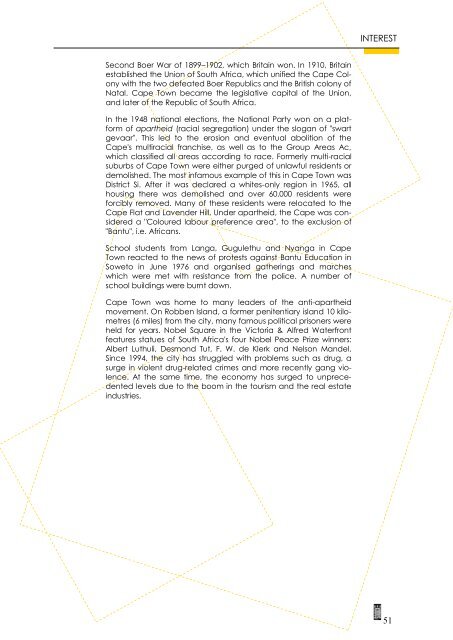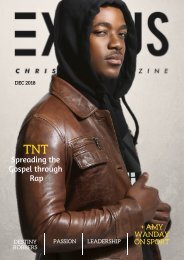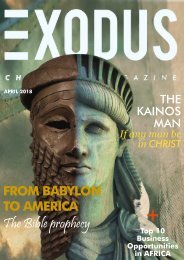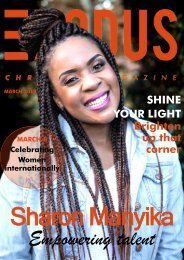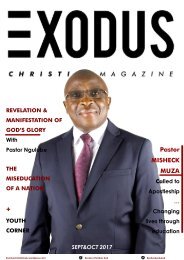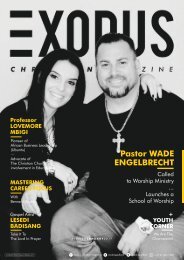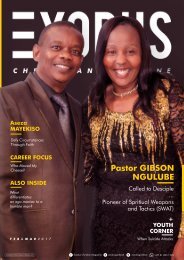ExodusMagApril2017
Create successful ePaper yourself
Turn your PDF publications into a flip-book with our unique Google optimized e-Paper software.
INTEREST<br />
Second Boer War of 1899–1902, which Britain won. In 1910, Britain<br />
established the Union of South Africa, which unified the Cape Colony<br />
with the two defeated Boer Republics and the British colony of<br />
Natal. Cape Town became the legislative capital of the Union,<br />
and later of the Republic of South Africa.<br />
In the 1948 national elections, the National Party won on a platform<br />
of apartheid (racial segregation) under the slogan of "swart<br />
gevaar". This led to the erosion and eventual abolition of the<br />
Cape's multiracial franchise, as well as to the Group Areas Ac,<br />
which classified all areas according to race. Formerly multi-racial<br />
suburbs of Cape Town were either purged of unlawful residents or<br />
demolished. The most infamous example of this in Cape Town was<br />
District Si. After it was declared a whites-only region in 1965, all<br />
housing there was demolished and over 60,000 residents were<br />
forcibly removed. Many of these residents were relocated to the<br />
Cape Flat and Lavender Hill. Under apartheid, the Cape was considered<br />
a "Coloured labour preference area", to the exclusion of<br />
"Bantu", i.e. Africans.<br />
School students from Langa, Gugulethu and Nyanga in Cape<br />
Town reacted to the news of protests against Bantu Education in<br />
Soweto in June 1976 and organised gatherings and marches<br />
which were met with resistance from the police. A number of<br />
school buildings were burnt down.<br />
Cape Town was home to many leaders of the anti-apartheid<br />
movement. On Robben Island, a former penitentiary island 10 kilometres<br />
(6 miles) from the city, many famous political prisoners were<br />
held for years. Nobel Square in the Victoria & Alfred Waterfront<br />
features statues of South Africa's four Nobel Peace Prize winners:<br />
Albert Luthuli, Desmond Tut, F. W. de Klerk and Nelson Mandel.<br />
Since 1994, the city has struggled with problems such as drug, a<br />
surge in violent drug-related crimes and more recently gang violence.<br />
At the same time, the economy has surged to unprecedented<br />
levels due to the boom in the tourism and the real estate<br />
industries.<br />
51


